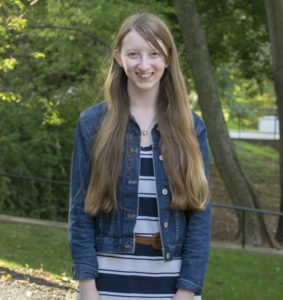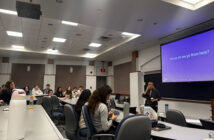
Madison Hoff
When I was a reporter for the lifestyle section of The Brown and White, I interviewed a few students and alumni about various businesses they created. I would always end my interviews with a question: How has Lehigh helped you prepare for this business and for the future?
They would say which classes were the most helpful, but they would also tell stories of opportunities outside the classroom, such as EUREKA! competitions and Mountaintop programs, and how they were more vital to preparing for their businesses.
The classroom provides students the knowledge they will need for a job, while an internship gives them time to practice these acquired skills and learn if the field is right for them before committing to a future job.
A 2015 survey conducted by the National Association of Colleges and Employers collected information on a student’s employment opportunities based on whether or not they took part in an internship and whether the internship was paid or not. The results said those who had an internship were far more likely to get a job offer than those who did not.
Though it might seem hard to balance schoolwork and the internship process, it is important to seek work while studying to gain experience in a chosen field before graduation. Working at an internship might help students figure out if they like what they’re doing or not.
Hearing stories of work at Mountaintop, Baker Institute competitions and student-run businesses at Lehigh, I wanted to take my studies and build upon them by taking part in a research program.
This past summer, I researched the psychology behind “fake news” with a team at Mountaintop consisting of undergraduates, a graduate student and professors. I enjoyed the project and researching experiments, brainstorming, reading scholarly articles and debugging code.
I learned a lot more work goes into research than I expected. It takes time to perfect an experiment, compile all the necessary material and narrow down the subject you want to focus on. We had 11 different variables we wanted to measure, but we knew this was not feasible in one summer.
The most valuable part of my experience was working with my team of different majors and skill sets, something that would not be possible in a typical classroom. It was practice I can use in the future.
In the job market, people come from all kinds of different backgrounds and experiences — it’s important to learn how to work through these differences. My research gave me insight into my future career options.
Some students might be afraid someone else will get the internship before them, or someone else deserves it more. I had the same fears, lacking confidence in my abilities. Some practice in class projects and homework helped, but I thought someone with more experience was better qualified for the position.
My professors and friends pushed me to apply when they saw my interests aligned perfectly with the internship — computer science, journalism and cognitive science were part of the program requirements.
In the end, I got the position. It never hurts to try — at least you know you did all you could.
After getting into an internship or research program, students continue to learn along the way. Employers want to see that growth.
For example, I thought I was good at creating surveys until we needed questions for our experiments. I realized there is a lot to take into consideration, such as deciding on the length of the experiment, perfecting a clearly-written survey and ensuring all relevant questions are asked.
It is important for students to get out of their comfort zones in college and show confidence in their abilities. We should not be afraid to reach for new job opportunities. Although we may be busy with other work, we should not forget to put what we’re studying into practice through an internship.
If I didn’t take the position in the research team, I would not have learned how to create psychological experiments, and I wouldn’t have realized I want to explore the field more than through my primary studies.
—
Madison Hoff, ’19, is an associate data editor for The Brown and White. She can be reached at mgh319@lehigh.edu.





Comment policy
Comments posted to The Brown and White website are reviewed by a moderator before being approved. Incendiary speech or harassing language, including comments targeted at individuals, may be deemed unacceptable and not published. Spam and other soliciting will also be declined.
The Brown and White also reserves the right to not publish entirely anonymous comments.